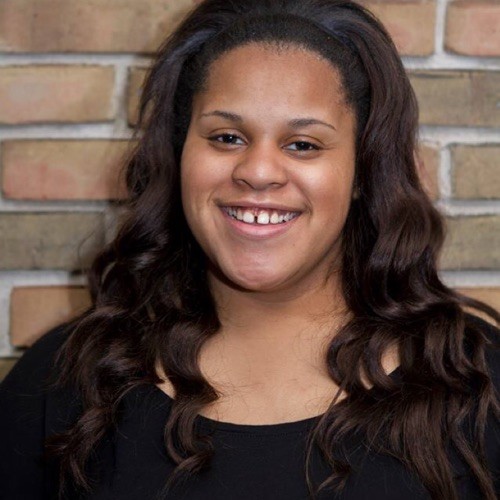What college essays should entail, how to deal with hovering parents, typing out college essays on your cell phones, and the three red flags a candidate won’t succeed at Columbia. SocratesPost interviews admissions officer Margaret Jones of Columbia College this week for her exclusive insights on what’s behind the admission door.


Exclusive Insider Interview: Admissions Officer, Columbia College Chicago
SocratesPost: Margaret, can you tell me about your experience working in admissions?
Margaret at Columbia: When I was in college, I was a tour guide for undergraduate admissions. I started the summer after my freshman year of college and worked through my senior year, so May of 2014 I believe, until graduation in May of 2017.
During that time I also was an intern at a high school and the college guidance office. They gave me a little bit of an extension of admission experience just to work with students and lot of different schools. And then shortly after my graduation from my college, I started working at Columbia in July of 2017. I’ve been working there for little over a year and a half, and it’s been a great time.
SocratesPost: That’s exciting. Where were you a tour guide?
Margaret at Columbia: I went to Concordia Chicago. I got to stay in the area. Definitely two very different schools as well. I got to see a lot of different aspects of admissions in the way that different schools do things.
SocratesPost: So what’s a day in the life of Margaret today at Columbia College reading applications?
Margaret at Columbia: At Columbia, we are divided into territories. My territory is the north and the northwest city of Chicago schools. I primarily have Chicago Public School applicants now, which is definitely its own type of territory and something that is a challenge for me. But also it was something that I enjoy doing, because a lot of the students from CPS come from the same background that I do – low income, first-generation college students, and a lot of our students are of color as well. It’s definitely a population that I’m passionate about, which I enjoy being able to work with them. Depending on the time of year, I have a ton of applications that I read. So it kind of just depends on the day to be honest.
SocratesPost: So how long does it take for you to review each application? I’ve heard some people in admissions say, “we only get two to three minutes to read your application. Try to get everything out three minutes.” How long does it typically take you?
Margaret at Columbia: Because of the population that I serve, it oftentimes is unrealistic to review an application in three minutes, especially because we do require two short answer types of questions. They’re a max of 250 words, so I have to read both of those. I do like to do a detailed review of transcripts, in the sense of I’m going to look at their core grades. But also, since Columbia is more of an arts focused school, I like to see what kind of grades students are making in those art classes as well.
I divide my review up into two parts. I’m looking at your core GPA, if you submit your test scores, but also your writing and often want to look at your art grades and creative grades. Also if you submit any type of work for scholarship review or anything like that. I also like to look at that stuff as well. So generally, it takes me about five to seven minutes, depending on the application.
SocratesPost: Okay, cool. So it seems like you might be able to get through quite a lot everyday if you only did applications.
Margaret at Columbia: Yeah.
SocratesPost: You were talking about looking at the students and applicants’ art grade. What types of applicants impress you the most?
SocratesPost: That’s really good to know. You were also talking about the two short essay questions. What do you like to see out of those essay questions?
SocratesPost: On the flip side though, some students try to get their parents or older siblings or teachers write their application for them. Has that ever happened to you, where you thought, “I know you didn’t write this. I think your mom wrote this”?
SocratesPost: Do you ever write a negative review for a student if their parents are overly involved because you keep hearing from the parents but not the student?
SocratesPost: I was on the website and I was looking at your application materials and I didn’t see a section for recommendation letters from teachers. Do you require recommendation letters from teachers and if not, what is the thought process behind that?
SocratesPost: You were talking about the committee. So can you kind of walk me through the process of the application: when you get it, is it you who reads it first and then you present it to the committee or how does that work?
SocratesPost: Okay. What are the three biggest red flags that an applicant won’t succeed at Columbia College?
SocratesPost: That’s super helpful. Margaret. Sometimes students have to take a medical leave or some sort of leave during high school. Maybe they’re doing something else or they just aren’t able to be in school for that time for some, for whatever reason. So how do you address their leave of absence if you see in a transcript that they weren’t enrolled in school for like a year or two?
SocratesPost: Okay. Do you recommend if a student is going through a hard time in high school to reach out to you guys and let you know and ask you questions about how they can work around that or do you prefer to reach out to them?
Stay tuned for the remainder of our exclusive insider interview with Margaret next week!
